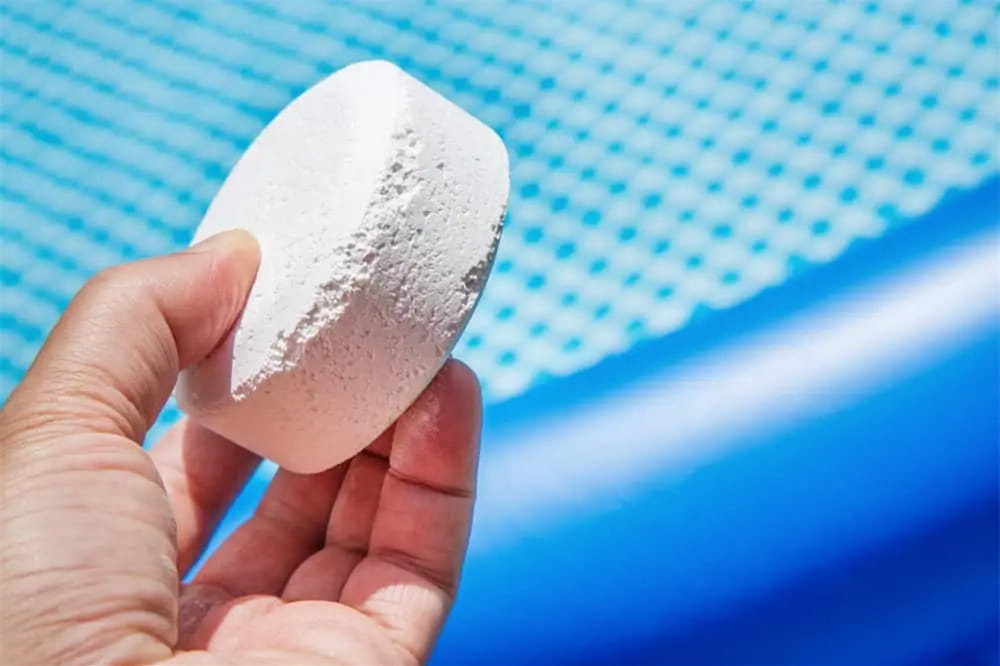When maintaining a clean, safe, and enjoyable pool, using high-quality chlorine tablets is essential. These tablets are the backbone of pool sanitation, helping to keep harmful bacteria and algae at bay. However, over time, chlorine tablets can lose their effectiveness or go bad. If you’re not sure whether your chlorine tablets are still effective, here’s a guide to help you identify the signs of deteriorating tablets, as well as some tips on purchasing chlorine tablets for pool maintenance that won’t break the bank.

Why Do Chlorine Tablets Go Bad?
Chlorine tablets generally have a long shelf life, but like most chemical products, they’re susceptible to environmental factors and degradation over time. Most chlorine tablets are formulated to last up to five years if stored correctly. However, heat, humidity, and improper storage can reduce this period significantly. When tablets go bad, they lose their potency, meaning you’ll need to use more of them to achieve the same results, or worse—they may not sanitize the pool at all, leaving it susceptible to contaminants.
How to Tell If Chlorine Tablets Are Bad
Here are some tell-tale signs that your chlorine tablets might be past their prime:
1. Faded or Discolored Tablets
High-quality chlorine tablets are typically white or off-white. If you notice that the tablets have changed in color, appearing yellowish or grayish, it could be a sign of degradation. This discoloration usually indicates that the active chlorine compounds have broken down.
2. Crumbled or Powdery Texture
Fresh chlorine tablets should be firm and solid. When you hold them, they should feel dense and not easily break apart. However, if the tablets crumble easily, have developed a powdery residue, or have started to break down into chunks, they are likely losing their efficacy.
3. Reduced Chlorine Smell
Chlorine tablets generally have a distinctive, strong chlorine smell. If you notice that the tablets lack that familiar chlorine scent, it could be a sign that they have lost their potency. A reduction in smell often indicates that the chlorine is no longer as concentrated or effective.
4. Ineffective Pool Sanitation
Even if the chlorine tablets appear normal, one of the clearest indicators that they may be ineffective is if you’re experiencing issues with water clarity, algae buildup, or a murky pool despite regular use of tablets. If you find yourself adding more tablets than usual or shocking the pool more frequently, this could be a sign that your tablets have deteriorated.
Common Causes of Chlorine Tablet Deterioration
1. Improper Storage
Storing chlorine tablets in an area exposed to sunlight, heat, or moisture can significantly impact their longevity. Ideally, you should store them in a cool, dry, and well-ventilated area. Exposure to moisture is particularly damaging, as it can cause the tablets to become soft or crumbly.
2. Expired Tablets
While chlorine tablets for pool use can last several years, always check for an expiration date on the packaging. Using expired tablets won’t necessarily harm your pool, but their effectiveness in sanitizing will be greatly reduced.
3. Improper Packaging
Purchasing cheap but good chlorine tablets can be a great way to save money, but quality packaging is essential. Ensure that any tablets you buy are stored in airtight containers, as exposure to air can lead to oxidation and degradation.
How to Test Chlorine Tablet Effectiveness
If you’re uncertain about the potency of your chlorine tablets, there are simple ways to test them:
1. Dissolve and Observe
Take a sample of your pool water and dissolve a small portion of a chlorine tablet in it. If the water doesn’t become cloudy or doesn’t give off a strong chlorine smell, the tablet may be less effective.
2. Regular Water Testing
Use a chlorine test kit or test strips to check your pool’s chlorine levels after adding your tablets. If the readings remain consistently low despite adding tablets, this is a red flag that your tablets are no longer effective.
3. Compare with New Tablets
If possible, test a new tablet from a fresh batch alongside the potentially degraded tablets. Compare the dissolved water’s appearance and smell—if there’s a noticeable difference, it’s time to replace the old tablets.
FAQs About Chlorine Tablets
Q: Can I still use chlorine tablets if they are slightly crumbled?
A: Slightly crumbled tablets can still work but may dissolve faster than expected. However, if they’re completely powdery, it’s best to replace them.
Q: How often should I replace my chlorine tablets?
A: With proper storage, chlorine tablets can last several years. Regularly check their condition and replace if they show signs of degradation.
Q: Are there alternatives to chlorine tablets if mine go bad?
A: Yes, liquid chlorine or granular chlorine can temporarily replace tablets. However, tablets provide a more controlled and sustained release of chlorine.
Final Thoughts
Keeping an eye on the condition of your chlorine tablets is an essential part of maintaining a clean and safe pool environment. By recognizing the signs of deterioration, testing your tablets, and investing in cheap but good chlorine tablets from reputable brands, you can ensure your pool stays sparkling and sanitized. Proper storage and mindful purchasing can make a significant difference, maximizing the lifespan and effectiveness of each tablet, ensuring your pool water remains clear and safe for swimming.
